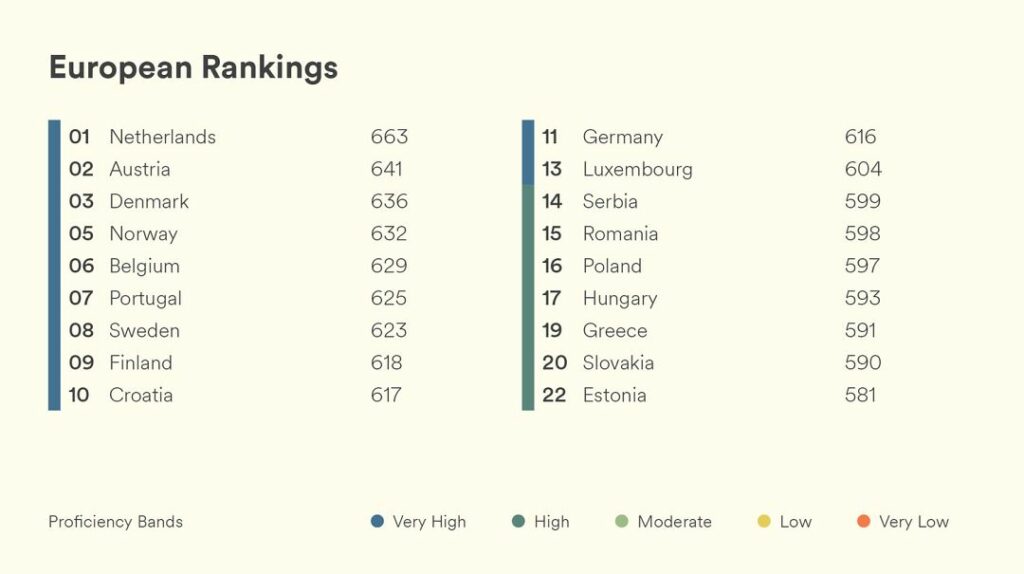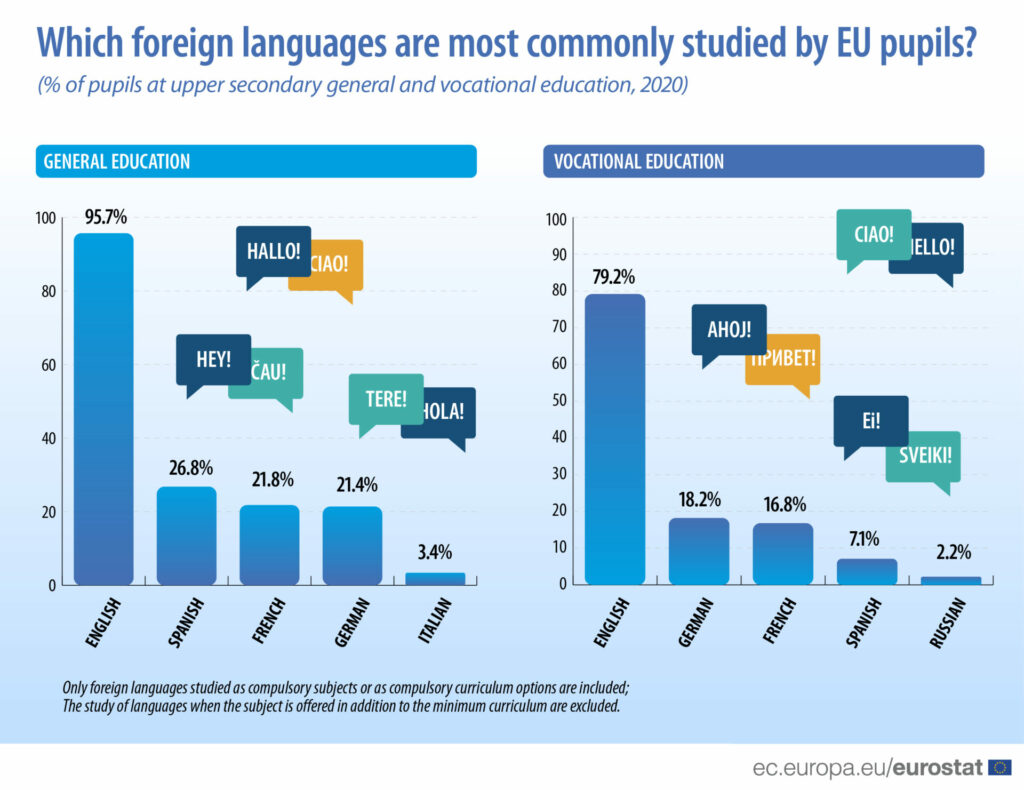The EU officially recognises 23 languages and encourages multilingualism. But people's foreign language skills vary widely across the bloc.
The EU's statistics agency Eurostat found that two-thirds of working-age adults (35.4 %) in the EU in 2016 knew at least one foreign language. 21.0% knew two foreign languages, and 8.4% spoke three or more foreign languages.
Nine in ten adults reported knowing at least one foreign language in Sweden (96.6 %), Latvia (95.7 %), Denmark (95.7 %), Lithuania (95.6 %), Luxembourg (94.5 %), Finland (92.1 %), Malta (91.8 %) and Estonia (91.2 %).
Countries, where people are the least likely to speak foreign languages, are Bulgaria (49.5 %), Hungary (42.4%) and Romania (35.8 %), as of 2016.
A culture of learning
In most EU countries, learning foreign languages is mandatory at school. English remains the most-studied foreign language in Europe, but there are regional differences. All primary and secondary school students in Malta, Liechtenstein, Northern Macedonia and Austria studied English at school in 2017.
Linguistic diversity within countries can mean that students are introduced to other languages before English. This can be seen in Belgium, where parts of the country are French-speaking while others speak mostly Flemish or German. In the Flemish-speaking community, children are required to learn French at age 10 before they learn English.
By contrast, Wallonia has only recently decided to make Dutch compulsory from the third year of primary school, though this is already the case in predominantly French-speaking Brussels.
Although English dominates foreign language learning, Spanish, French and German are learnt by many students as a second or third foreign language. But these aren't the only languages taught. Russian is learnt by countries bordering Russia or which used to be part of the Soviet bloc, including the Baltics and Bulgaria.
A continent of anglophiles?
Not all nations are as proficient when it comes to embracing English; just as Brits are known for their reluctance to learn other languages, findings from Education First ranked France 31st among European countries when it comes to speaking English. Some put this down to the nation's lack of exposure to English and poor teaching.
Yet native-English speakers cannot point fingers. Anglophone countries speak fewer foreign languages compared to other European countries. According to the European Commission's barometer in April 2018, 32% of UK 15-30 year-olds felt confident reading and writing in two or more languages, compared to 79% in France, 91% in Germany, and 80% on average across EU Member States.

English proficiency index. Credit: Education First
Age differences
Age plays a huge part in language skills; in 2016, almost three-quarters (73.3 %) of the EU's population aged 25-34 knew at least one foreign language. That number falls considerably among 55-64 year-olds. Nonetheless, over half of those aged 55-64 (55.1%) said they knew at least one foreign language.
In addition to a generational gap in language learning, the educational divide in the foreign language skills of the EU's working adult population (25–64 years-old) is remarkable. Over eight in ten EU residents who have finished a tertiary level of education report speaking at least one foreign language. Almost two-thirds (63.1%) of those with an intermediate level of education spoke a foreign language.
Among those with lower than secondary levels of education, this is still 41.7%.
Urban vs. rural
As anyone living in Brussels will know, cities tend to be far more multilingual than countryside communities. People living in cities reported more proficiency in their best foreign language than those living in towns, suburbs and rural areas.
The city and countryside language divide was the most evident in Lithuania, Denmark, Cyprus and Finland (all with around 22 a 22% proficiency difference). The gap is most marked in Austria, which recorded a 34% difference between people in the country and those in cities.
Related News
- English still number one EU language despite lack of native speakers
- Belgium in Brief: Pushing language to its limits
Foreign language abilities in the continent increased between 2007 and 2016. Almost a quarter (24.8 %) of working-age adults reported knowing their best foreign language at a proficient level. From 2007 to 2016, the EU average rose by 3.4%. In Belgium, that figure rose by 1.6%.


